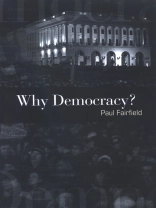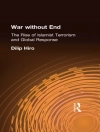Reexamines the normative justification for democratic politics.
While much of the world now embraces the democratic idea-that the people must rule-the philosophical case for democracy has yet to be made convincingly. Why Democracy? not only reexamines the current debates in normative democratic theory, but also challenges popular conceptions that tend toward an uncritical idealization of popular rule. It is not enough to call for more extensive public deliberation, or for greater participation and inclusion in the democratic process, or for a radical extension of the scope of the process. Making the case for democracy requires examining its imaginative and rhetorical dimensions as well. The democratic idea of ‘rule by the people’ must be understood less as a definition than as an aspiration, a trope, and the beginning of a narrative that includes, while extending beyond, the domain of government.
Содержание
Introduction
Posing the Question
1. ‘The Fountainhead of Justice’?
2. Democracy: Communitarian, Participatory, or Radical?
3. Deliberative Democracy
4. A Modest Phenomenology of Democratic Speech
5. Why Democracy?
6. Between the Market and the Forum
Conclusion and Prognosis
Notes
Index
Об авторе
Paul Fairfield teaches philosophy at Queen’s University in Ontario and is the author of several books, including Moral Selfhood in the Liberal Tradition: The Politics of Individuality; Public/Private; and The Ways of Power: Hermeneutics, Ethics, and Social Criticism.












